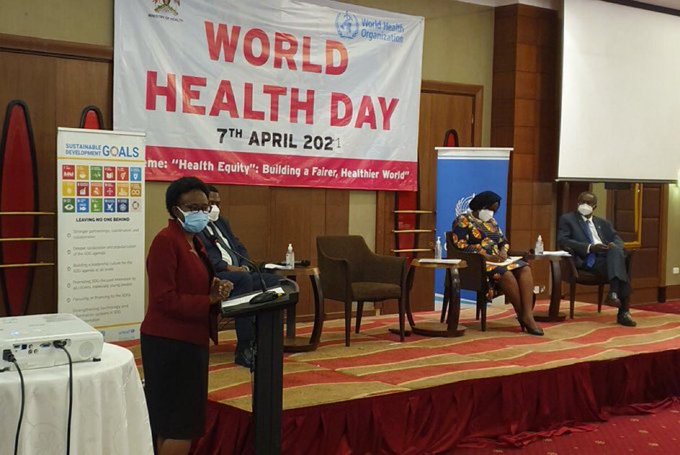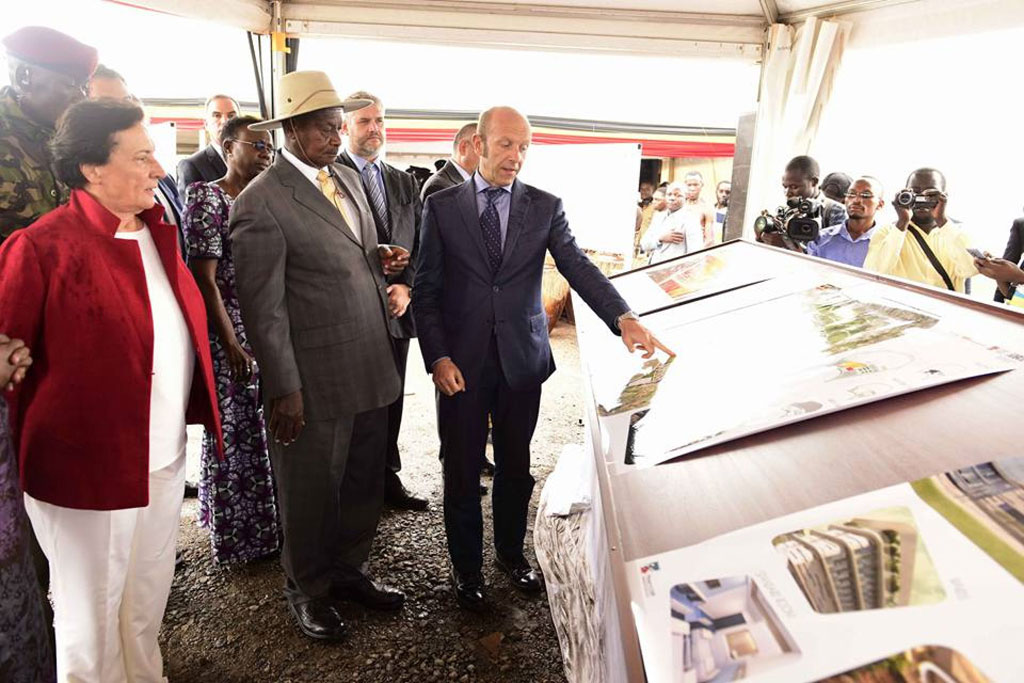Health Minister, Dr Jane Ruth Aceng has said the ministry is committed to addressing the health inequalities.
Aceng made the promise on Thursday as Uganda commemorated World Health Day at Kampala Sheraton Hotel.
The celebration is held under the theme; “Health Equity”; with the slogan “Building a fairer, healthier World”.
“Through the year the Ministry of Health will raise awareness and formulate measures and policies that address health inequities. We will highlight the advantages of improving health for all through better and more equitable health services and maintaining the conditions for health. The Ministry will continue to engage all sector players to address health equity through knowledge exchange activities and products. In addition, we will strengthen partnerships to accelerate progress towards health equity,” Aceng said.
World Health Day is a global health awareness day celebrated every year on April 7, under the sponsorship of the World Health Organization, as well as other related organizations.
Aceng added, “Government of Uganda continues to prioritize access to health care whereby 86% of the population is now within a 5km reach of either a public or private health facility. This is intended to bridge the gap of distance and access to health care as well as the economic opportunity costs associated with travel to the health facility.”
Over the past 50 years, WHD has brought to light important health issues such as mental health, maternal and child care, and climate change. The celebration is marked by activities which extend beyond the day itself and serves as an opportunity to focus worldwide attention on these important aspects of global health.
As part of its efforts to increase access to healthcare, the Ministry of Health has upgraded over 200 Health Center IIs to Health Center IIIs in a bid to ensure that every sub-county has a health facility at the level of Health Center III. This, level of care provides all forms of health care including maternity services.
The government also continues to provide subsidies to private-not-for-profit (PNFP) health providers to lower user-fees, while health care is provided for free in the public health facilities since the abolition of user fees in 2001.

















